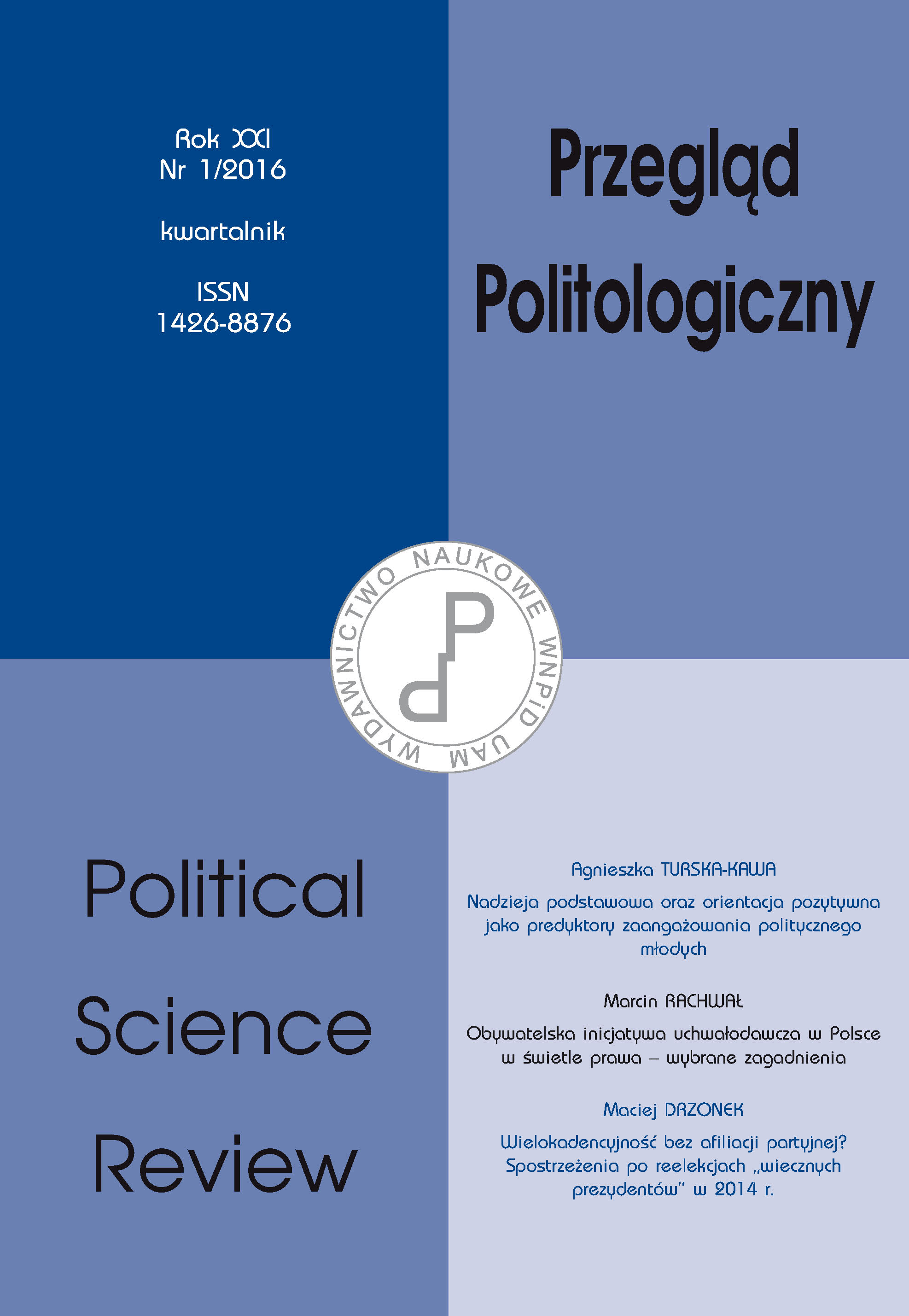Changes in Israeli collective identity as a source of tension in the political arena
Changes in Israeli collective identity as a source of tension in the political arena
Author(s): Mordechai LevySubject(s): Politics / Political Sciences, Politics, Social Sciences, Political Theory, Sociology, Politics and society
Published by: Uniwersytet Adama Mickiewicza
Keywords: Israeli society; Israeli party system; collective identity; voting behavior
Summary/Abstract: The positions of the political parties in Israel on the central issues that concern the Israeli society reveal a struggle between two social orientations regarding the desired character of the State of Israel. At one extreme stands the Jewish ethnic identity that draws its origins from the Jewish tradition and aspires to guaranty the Jewish nature of the state. The civic liberal identity that stands at the other end represents the aspiration of an equal and democratic state in the spirit of the values of the French Revolution. For the rst thirty years, Israel was ruled by left-wing socialist and secular parties who cultivated the civic identity. However, in 1977 a political upheaval occurred when the right-wing and religious parties took power and since then have operated to promote the Jewish ethnic identity. The strengthening of right-wing parties reveals a fundamental change in Israeli society. A consequence of the strengthening of the Jewish ethnic identity is the adoption of a dichotomous world view by the Israeli government and uncompromising positions toward the international arena, including the EU. The current structure of Israeli society, together with the trend for the coming years, suggests the strengthening of the Jewish ethnic identity, and therefore the political gap between Israel and the EU widening.
Journal: Przegląd Politologiczny
- Issue Year: 2016
- Issue No: 1
- Page Range: 193-294
- Page Count: 12
- Language: English

